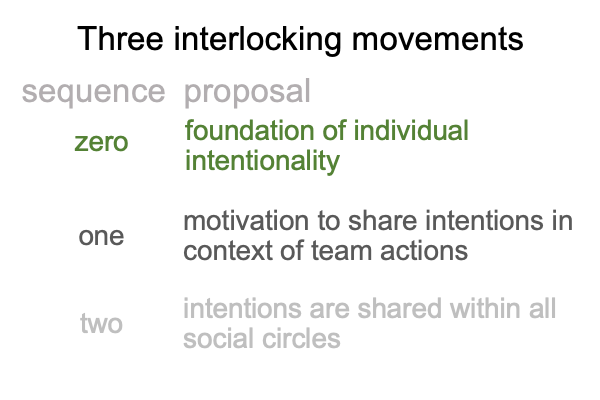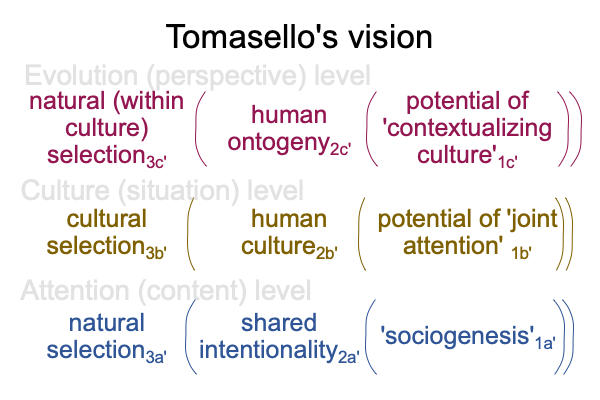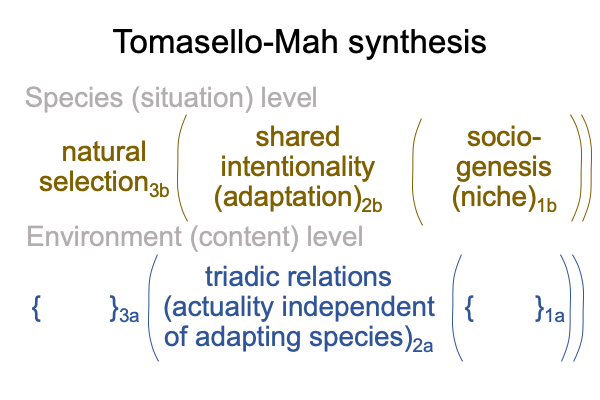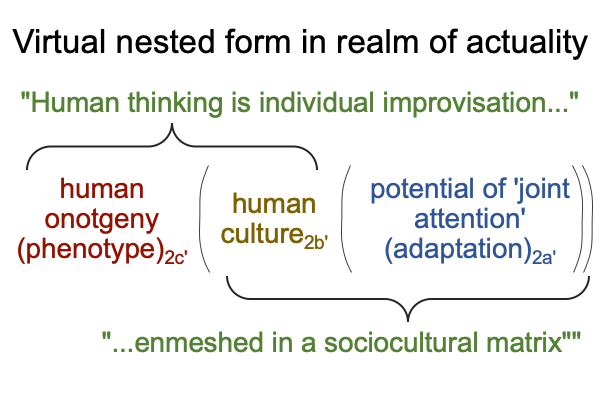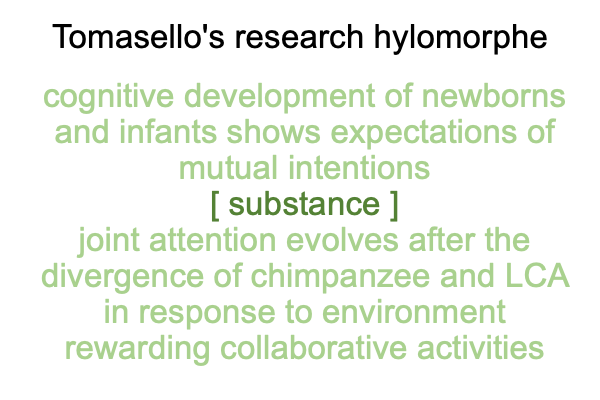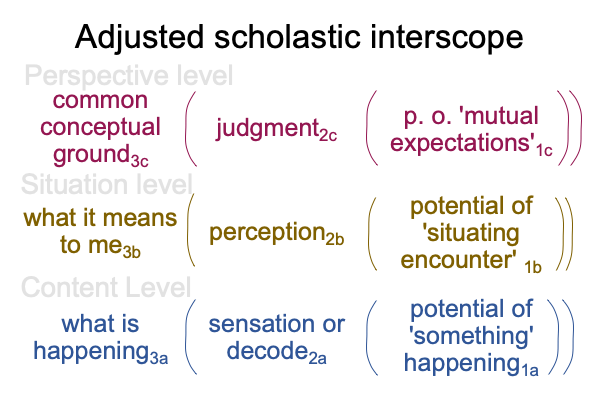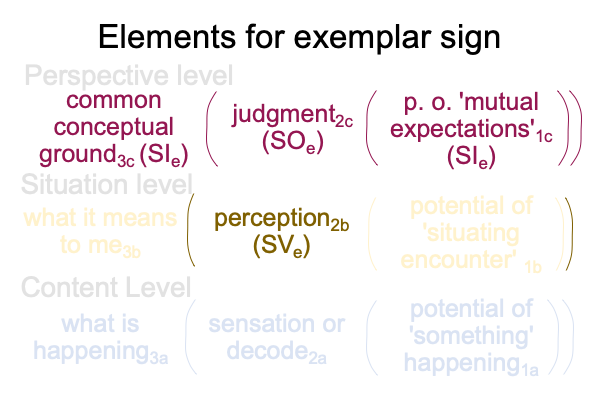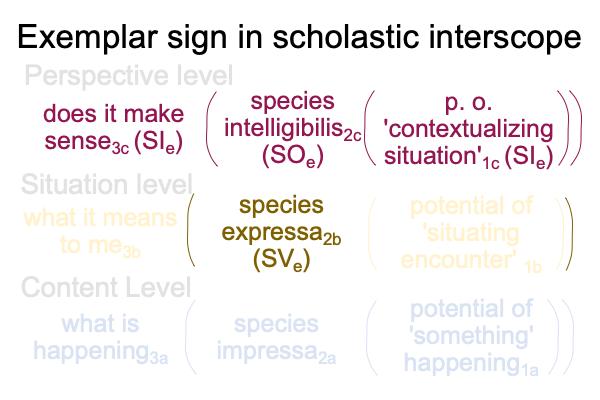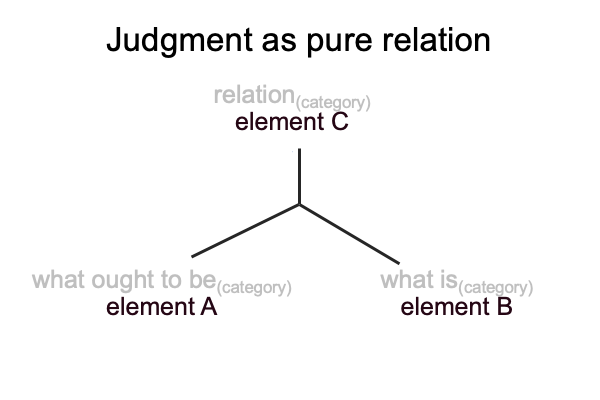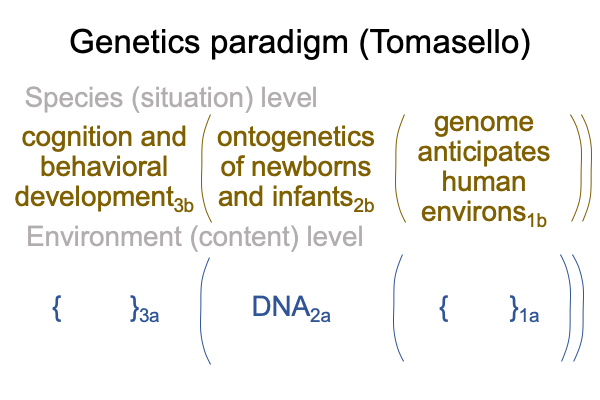Looking at Michael Tomasello’s Book (2016) “A Natural History of Human Morality” (Part 22 of 22)
0588 The Tomasello-Mah synthesis shows the ghost in the basement of the house of Tomasello’s vision.
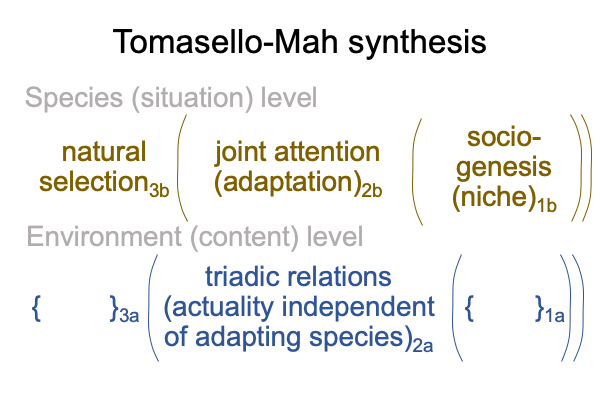
Indeed, as this version of Darwin’s paradigm begins to haunt the entire edifice of human evolution, then Tabaczek’s housebecomes more than a house with a basement. If sociogenesis1b is the potential1b of triadic relations2a, then Tomasello’s arc of inquiry may be re-articulated using triadic relations.
0589 For example, Razie Mah’s Primer on Sensible and Social Construction may be used to re-label the eras of individual, joint and collective intentionality. Individual construction associates to the category-based nested form. Sensible construction associates to the two-level interscope, containing content and situation levels. Social construction associates to the three-level interscope, containing content, situation and perspective levels.
Here is a list of what that might look like.
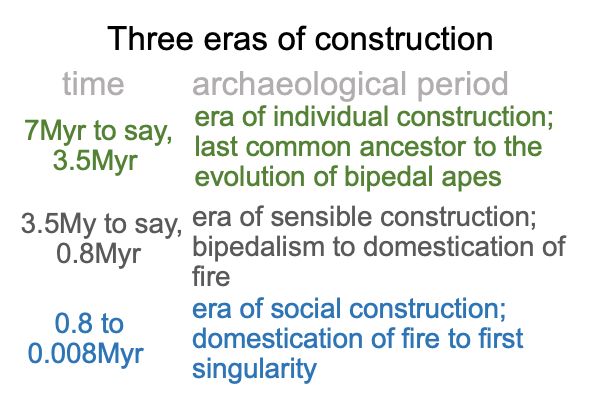
0590 To continue, the re-labeled eras may be regarded in terms of the evolution of talk.
The evolution of talk is not the same as the evolution of language. Language evolves in the milieu of hand talk.
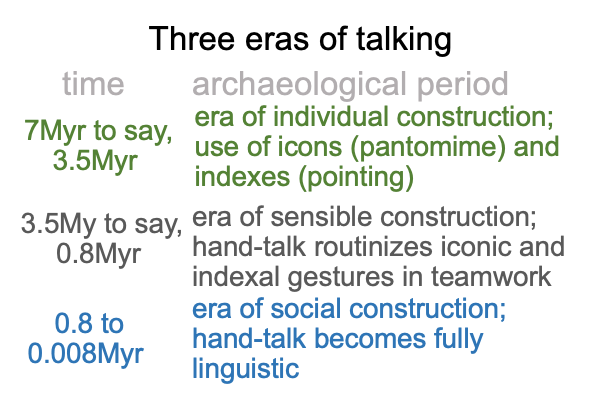
0592 Next, I would like to focus attention on the era of collective intentionality.
Here is a list depicting the timeframe.
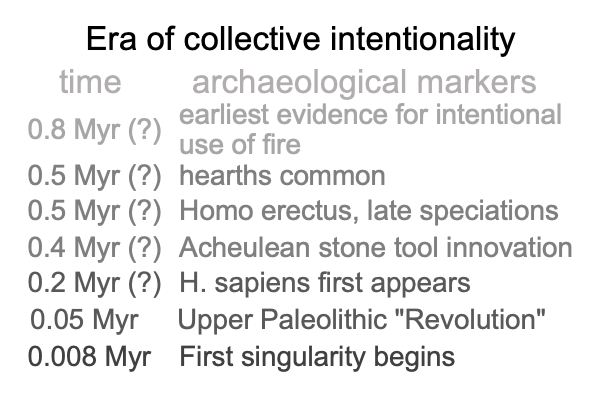
0593 Before the era of collective intentionality, hand talk is confined team activities. Hand talk produces sensible constructions. Each team develops its own way of hand talking.
After the domestication of fire, team-tradition hand talk starts to be used generally, eventually producing fully linguistic hand talk.
The situation is very dynamic. Since cooking with fire increases the number of teams, fully linguistic hand-talk is re-appropriated for specialized use in more and more teams. Fully linguistic hand-talk influences all social circles. In some of these circles, grammatically correct, yet apparently nonsensible statements, generate social constructions that open new cognitive spaces. These novel cognitive spaces become sites for more sensible construction.
0594 The voice comes into play during community meetings (150), seasonal mega-band round-ups (500) and special occasion tribal pow-wows (1500). The voice is used for synchronization. Song brings a large gathering of hominins into synchronization. Once this cultural habit starts, then singing joins other traits in sexual selection. The voice comes under voluntary control.
0595 Most likely, the early speciations of late Homo erectus produced species that could sing and hand-talk. But, they could not speak.
Speech is added to hand-talk with Homo sapiens. Anatomically modern humans practice a dual-mode of talking, hand-speech talk, for the next two hundred-thousand years.
0596 Hand-speech talk would still be practiced by anatomically modern humans today, were it not for the Ubaid of southern Mesopotamia. The hypothesis of the first singularity proposes that the Ubaid is the first culture on Earth to practice speech-alone talk.
Here is a picture of the era of social construction.
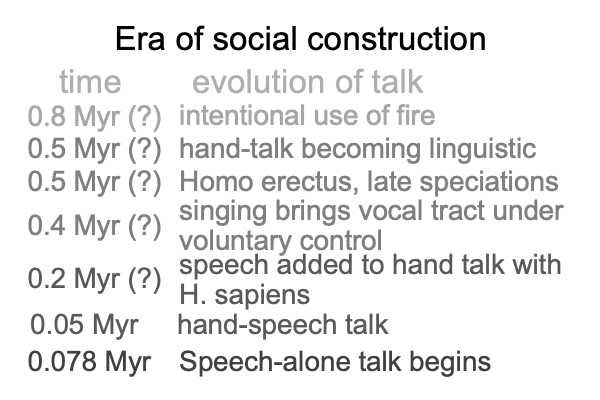
0598 Today, all civilizations practice speech-alone talk.
This brings me to the limit of Tomasello’s vision. I open the door, and step out into the realization that our current Lebenswelt is not the same as the Lebenswelt that we evolved in. I step into the vision of Razie Mah.
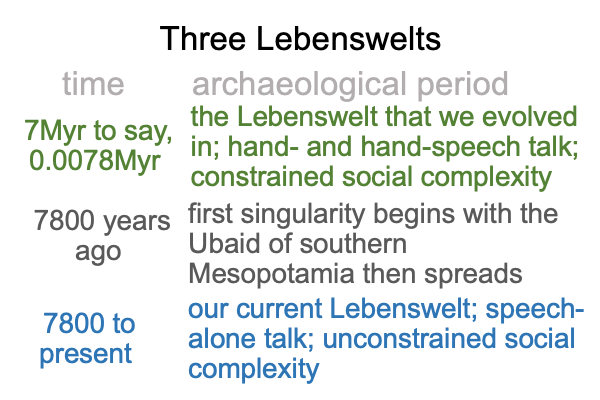
0599 The arc of Tomasello’s inquiry, spanning from 1999 to 2016, opens onto three masterworks by Razie Mah. These electronic books are available at smashwords and other e-work venues. This examination relies primarily on The Human Niche, along with books contained in the series, A Course on The Human Niche. A related series is titled, Buttressing the Human Niche.
Here is a list of Mah’s masterworks.
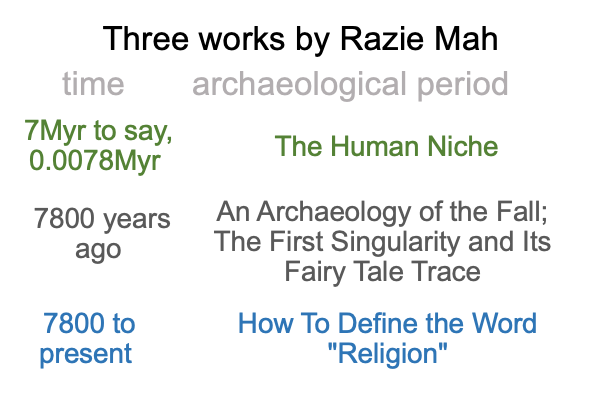
Still, there is more.
A Commentary on Michael Tomasello’s Arc of Inquiry (1999-2019) is available at smashwords and other e-book venues. This commentary includes Mah’s blogs for January, February and March, 2024, along with an examination of Becoming Human (2019), the fifth book in a sequence of five books.
0600 My thanks to Michael Tomasello, who writes the books under examination while Co-Director of the Max Planck Institute for Evolutionary Anthropology in Leipzig, Germany, for conducting a scientific inquiry, from which I have examined only several works.

